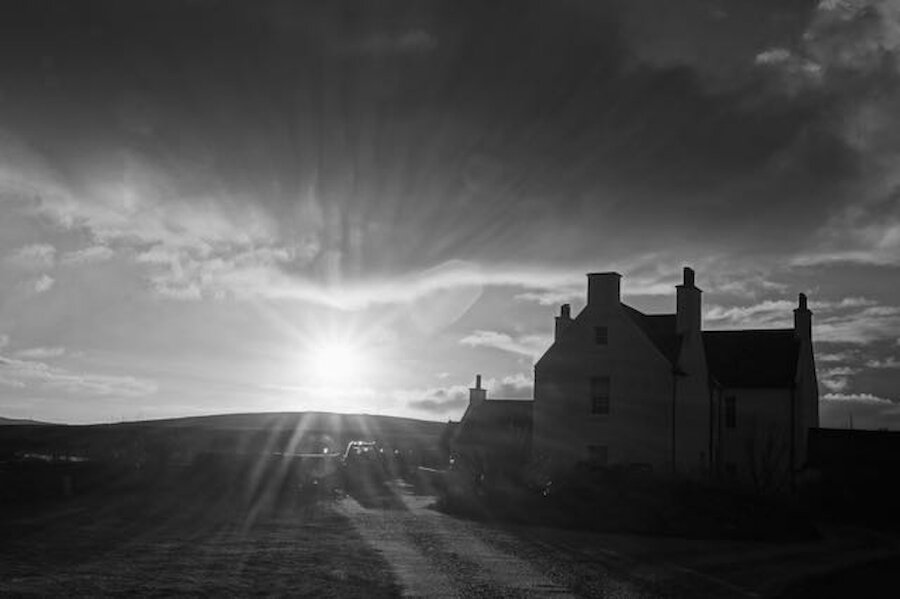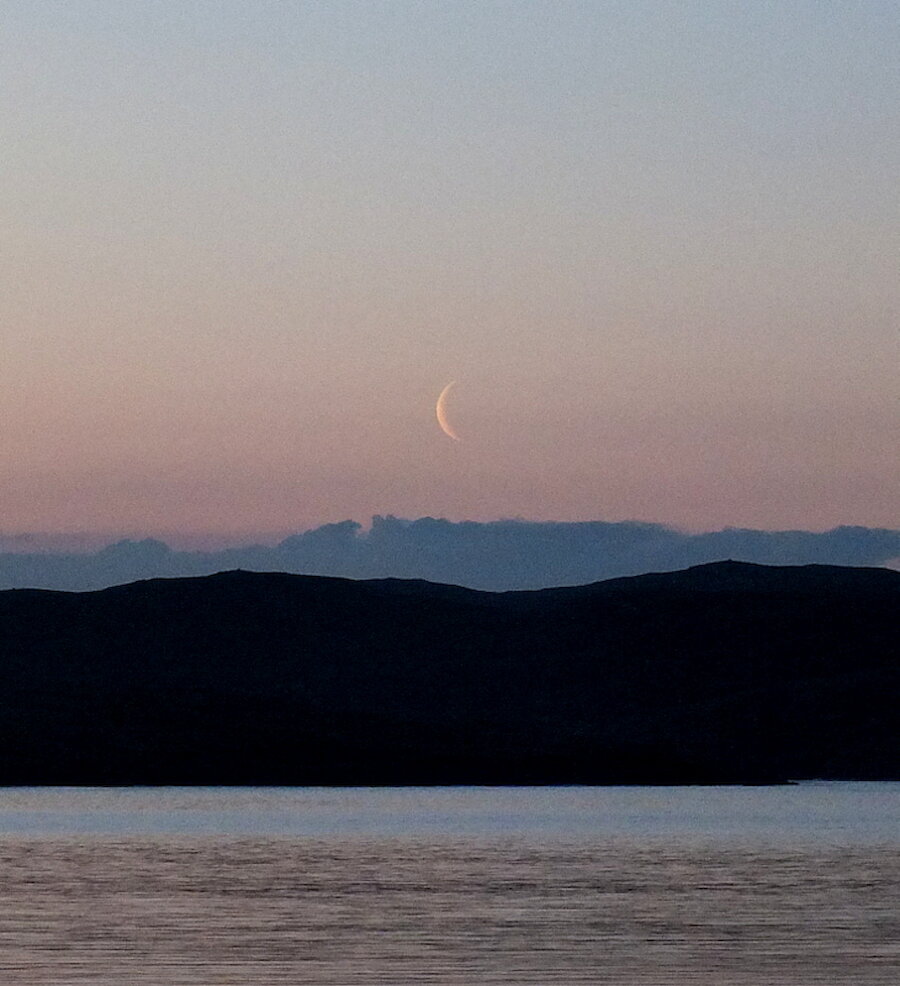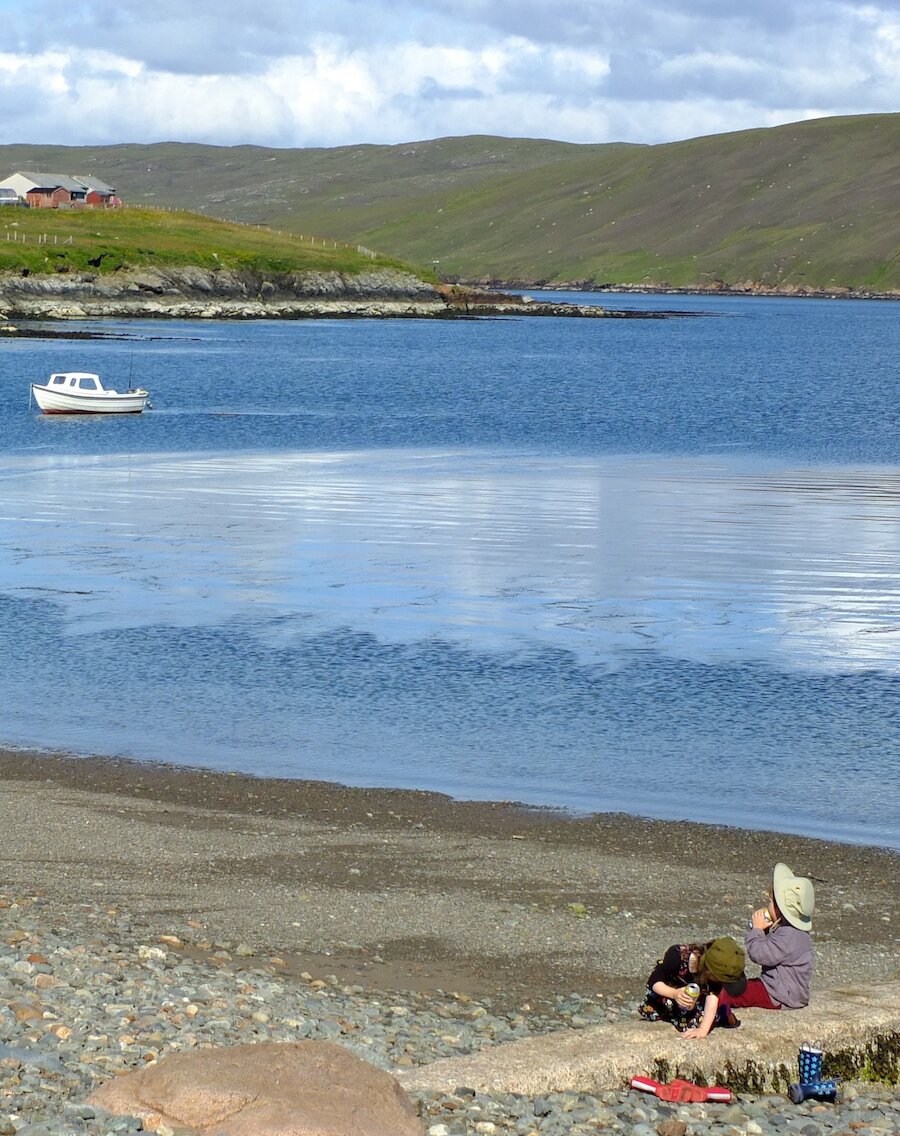The light comes in, days lengthen, midnight skies turn dark blue, then indigo, then pale pink or creamy grey. It’s May, and after the last rattle of hail, the final flutter of snow, comes a sudden blast of warmth.
At last the rhubarb is long enough to be worth harvesting, and at this time of year it’s sweet and tender. Puddings are sorted now until September, beyond if there’s a surplus, and there nearly always is, and there’s room in the freezer. Crumbles, pies, sorbets, stewed breakfast toppings, fools, yoghurts; amazing concoctions involving rhubarb cooked with mutton and mackerel, though not at the same time. Once considered so precious by the Chinese, people died to stop it being smuggled to the west. Now endemic in Shetland, unstoppable, unkillable, glorious. Appearing to grow inches from day to day, rhubarb is the sour, sharp sweetness of summer, even for gardeners lacking green fingers.
Green toes. And ankles. That’s an issue for those of us with grass to cut. From now until October, it’s every week, and the struggle to start reluctant mowers leads to pounding hearts, barked knuckles and much swearing. Finally, the engines smoke into life, and the endless tramping around lawns begins, the careful cutting into stripes of greensward, the dumping of cuttings on tattie beds to induce warmth and quicker growth. Along with the kelp, gathered from beaches after storms, washed and dried.
The days grow hotter, longer still, and you can find yourself up to two grass-cuts a week, mulch ingrained into sandled feet, or up shins if you’ve given in, unwisely to the temptation of shorts.



